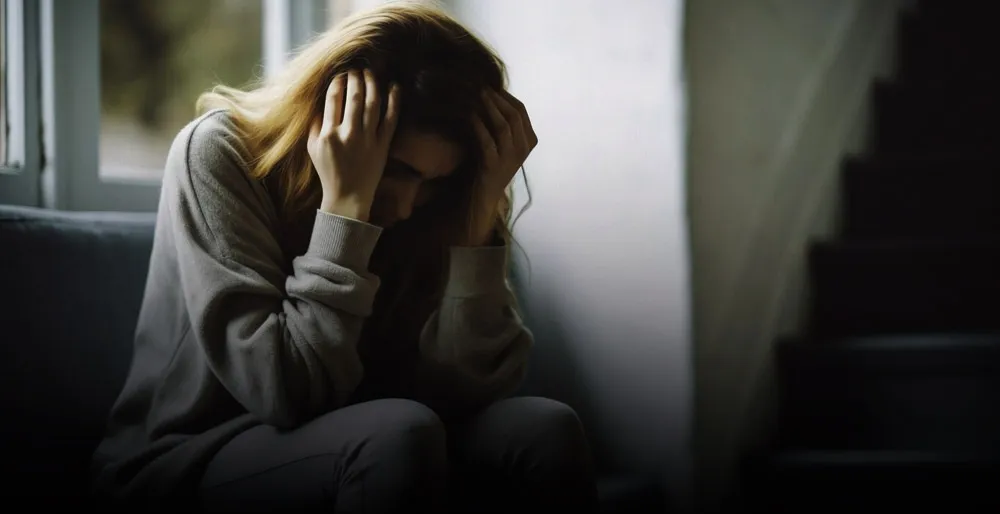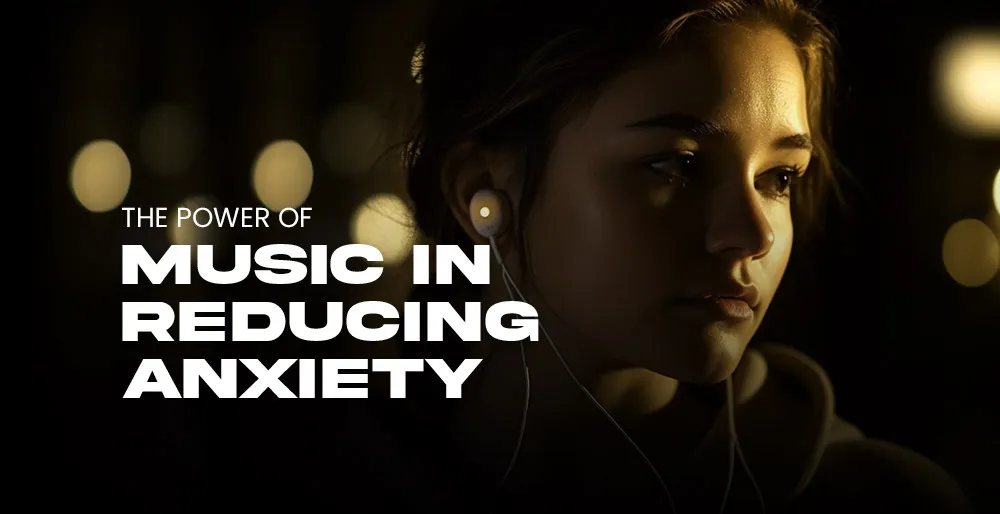In this article, we explore the extraordinary effects of music in reducing anxiety and restoring a sense of calm and balance to your life. The power of music to evoke emotions and feelings is undeniable. From the soothing melodies of a piano to the rhythmic beats of a drum, music has a unique ability to transport us to a different place, free from worry and anxiety. When life’s pressures mount, and the world feels like a tumultuous storm, there’s one serene harbor you can always turn to – music.
In today’s crazy world, anxiety’s everywhere. Work, personal stuff, life’s rat race – it all piles up, messing with our heads. But there’s a silver bullet in the mix: music. Music isn’t just about lifting your mood; it’s a legit anxiety-buster too. Studies back it up. We’ll break down how tunes can chill you out and some simple ways to make music your daily dose of calm. Let’s dive into how tunes can kick anxiety to the curb, and bring some Zen back into our lives. But how exactly can you harness the potential of music in reducing anxiety in your daily life? Well, it’s simpler than you think. Just plug in your earphones, find a quiet spot, and let the soothing tunes wash over you. Whether it’s classical symphonies or your favorite genre, music can become your trusted companion in moments of distress.

The Therapeutic Effects of Music
Music is pretty amazing when it comes to messing with our feelings and changing our vibe. It’s like a one-way ticket to the chill zone, where all the stress and worries from your daily grind just disappear. The science folks have even confirmed that music isn’t messing around – it can literally make your blood pressure drop, slow down your heart, and kick stress hormones to the curb.
Restful Sleep and Mood Enhancement
Music does wonders for your sleep. Students in a study found that listening to soothing classical music before bedtime not only improved their sleep quality but also eased their depression symptoms. Different types of music, such as Celtic, Native American, and Indian tunes, can help you relax and pave the way for a peaceful night’s sleep.
You know what? Music can do more than just chill us out. It can actually put us in a better mood and boost our emotional state. Some studies say that jamming to upbeat tunes can make us feel happier, especially if we’re intentionally vibing to them. And guess what, formal music therapy can even help with depression when used alongside other treatments. Cool, right?

Stress Reduction and Emotional Processing
Relaxing tunes do wonders in beating stress and anxiety. Research shows that when people listen to calming melodies, their blood pressure drops, and they need fewer painkillers, especially during surgery. Music therapists can guide folks to navigate their feelings by creating or listening to music, just like how traditional counseling works.
Learn more about enhancing your sleep quality here.

Using Music for Mental Well-being
Music therapy is great, but you don’t always need a therapist to feel the good vibes of music on your mind. You’ve got plenty of options to sneak some tunes into your daily grind for a mental boost.
1. Listen to Relaxing Music
Choosing the right stress-busting tunes is a personal thing, so there’s no one-size-fits-all answer. But if you’re not sure where to kick things off, consider tunes around 60 beats per minute. They tickle your alpha brainwaves, which are linked to a chill, alert vibe. Lots of streaming platforms dish out meditation beats at this pace. Or, you can groove to genres like Celtic, Native American, or Indian music – they’ve got a reputation for mellowing things out.
2. Express Yourself with Rhythm
No need for musical training – just grab a drum or rain stick and let your emotions flow through beats and rhythms. Make a spontaneous symphony of sounds that mirrors your feelings, gradually finding a calmer groove. It’s a way to express and deal with your emotions, like a sonic therapy session.
3. Create a Mood Playlist
When you’re feeling low or anxious, try tuning into a song that hits home with your mood. Let those lyrics and melodies connect with your emotions. Then, as you switch things up, move towards happier or soothing tunes. This method, often seen in music therapy, lets you embrace your feelings and nudge yourself toward a brighter mindset.
Remember, although music can be a great emotional regulator, it’s no replacement for expert mental health care. If you’re going through tough emotional times that affect your daily life, reach out to a licensed mental health pro for help.

In conclusion, music is your powerful ally in reducing anxiety and finding inner serenity. Music has an incredible capacity to reduce anxiety and promote mental well-being. Whether you choose to listen to relaxing music, express yourself through rhythm, write your own songs, or create personalized mood playlists, incorporating music into your daily life can significantly improve your emotional state. Remember, the power of music lies in its ability to speak to us on a deep emotional level, providing solace, comfort, and a pathway to healing. So, don’t hesitate to harness the therapeutic potential of music and let its melodies guide you towards tranquility and inner peace.









